The Toshiba RC100 SSD Review: Tiny Drive In A Big Market
by Billy Tallis on June 14, 2018 9:00 AM ESTRandom Read Performance
Our first test of random read performance uses very short bursts of operations issued one at a time with no queuing. The drives are given enough idle time between bursts to yield an overall duty cycle of 20%, so thermal throttling is impossible. Each burst consists of a total of 32MB of 4kB random reads, from a 16GB span of the disk. The total data read is 1GB.
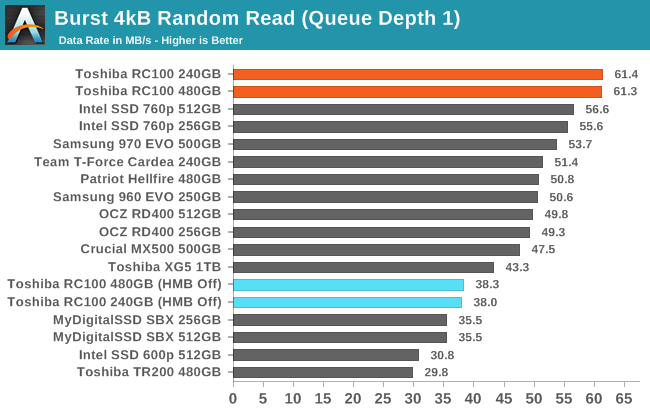
The Toshiba RC100 surprises with excellent burst random read performance, and even when HMB is off it outperforms the other low-end NVMe SSDs we've tested.
Our sustained random read performance is similar to the random read test from our 2015 test suite: queue depths from 1 to 32 are tested, and the average performance and power efficiency across QD1, QD2 and QD4 are reported as the primary scores. Each queue depth is tested for one minute or 32GB of data transferred, whichever is shorter. After each queue depth is tested, the drive is given up to one minute to cool off so that the higher queue depths are unlikely to be affected by accumulated heat build-up. The individual read operations are again 4kB, and cover a 64GB span of the drive.
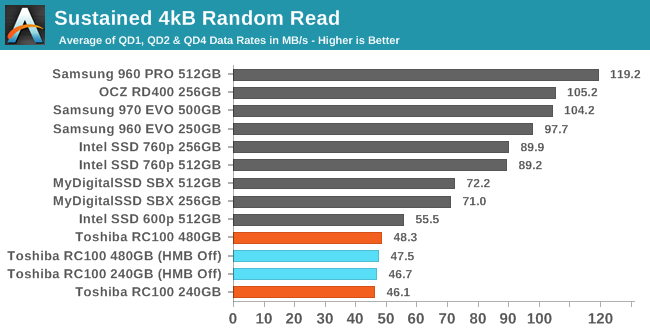
On the longer random read test that covers a broader span of the drive than HMB can help with, the Toshiba RC100's scores are unsurprisingly in last place among NVMe drives, but it's not too far behind the Intel 600p.
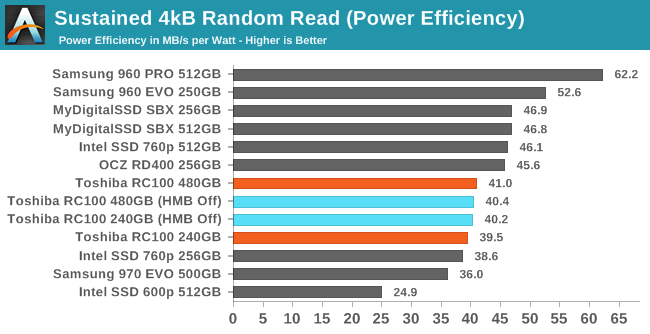 |
|||||||||
| Power Efficiency in MB/s/W | Average Power in W | ||||||||
The RC100 clearly uses less power during random reads than any other NVMe SSD we've tested, but the poor performance when reading from a wide span of the drive means the efficiency is just a bit below average.
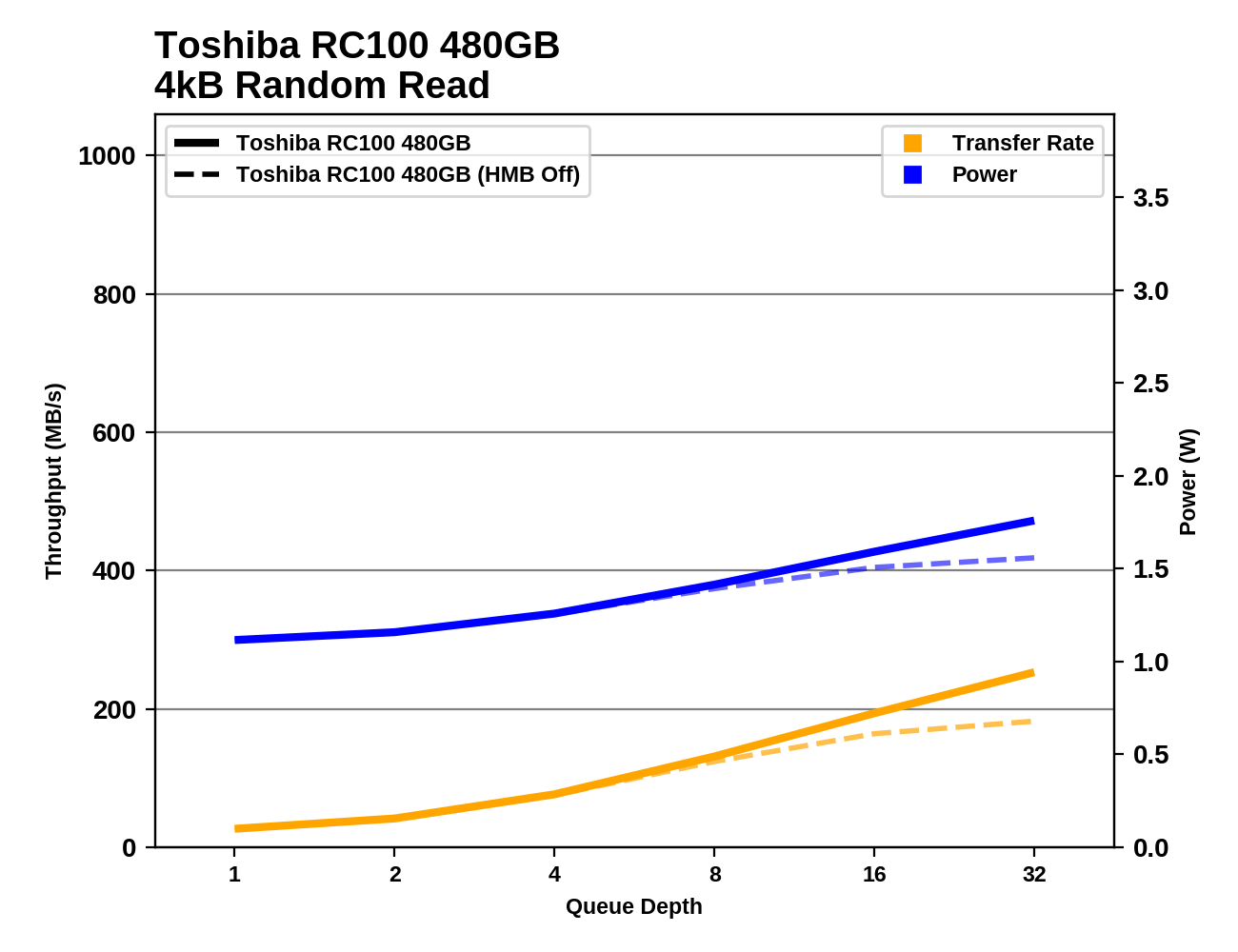 |
|||||||||
For the larger RC100, the HMB feature has a fairly large impact on random read performance at high queue depths even though the HMB cache is too small to completely handle this workload. At low queue depths and for the smaller 240GB model at any queue depth, HMB has minimal impact on random read performance.
Random Write Performance
Our test of random write burst performance is structured similarly to the random read burst test, but each burst is only 4MB and the total test length is 128MB. The 4kB random write operations are distributed over a 16GB span of the drive, and the operations are issued one at a time with no queuing.
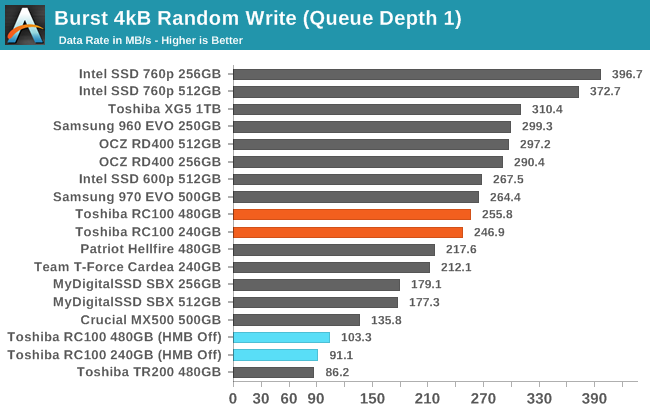
With HMB enabled, the burst random write performance of the Toshiba RC100 is decent, but without HMB it can't beat a mainstream SATA drive.
As with the sustained random read test, our sustained 4kB random write test runs for up to one minute or 32GB per queue depth, covering a 64GB span of the drive and giving the drive up to 1 minute of idle time between queue depths to allow for write caches to be flushed and for the drive to cool down.
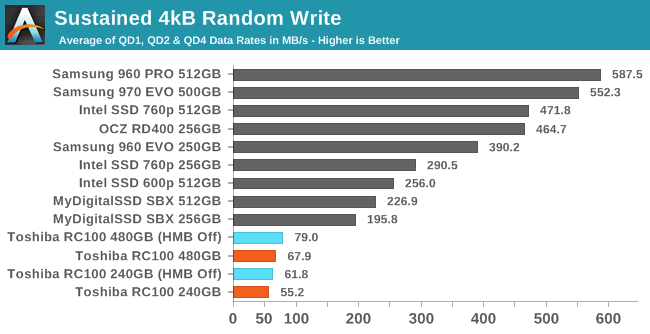
Once again, the large working set size of this test compared to the small host buffer size used by the RC100 condemns the drive to last place. The margin between the RC100 and the next-slowest NVMe drive is much larger than it was for the sustained random read test. HMB actually slightly hurts performance here.
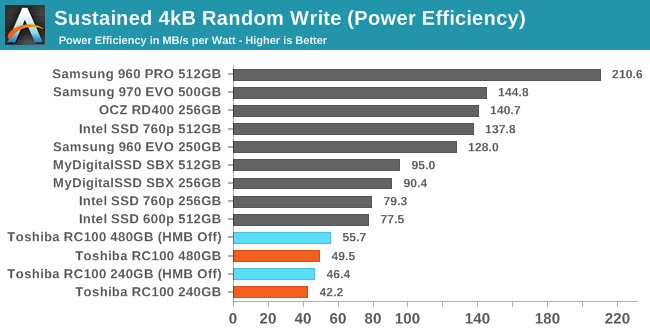 |
|||||||||
| Power Efficiency in MB/s/W | Average Power in W | ||||||||
Power consumption is slightly higher for random writes than for random reads, but still well below the other NVMe SSDs. The performance is low enough that the power efficiency score for the RC100 is worse than all the competition.
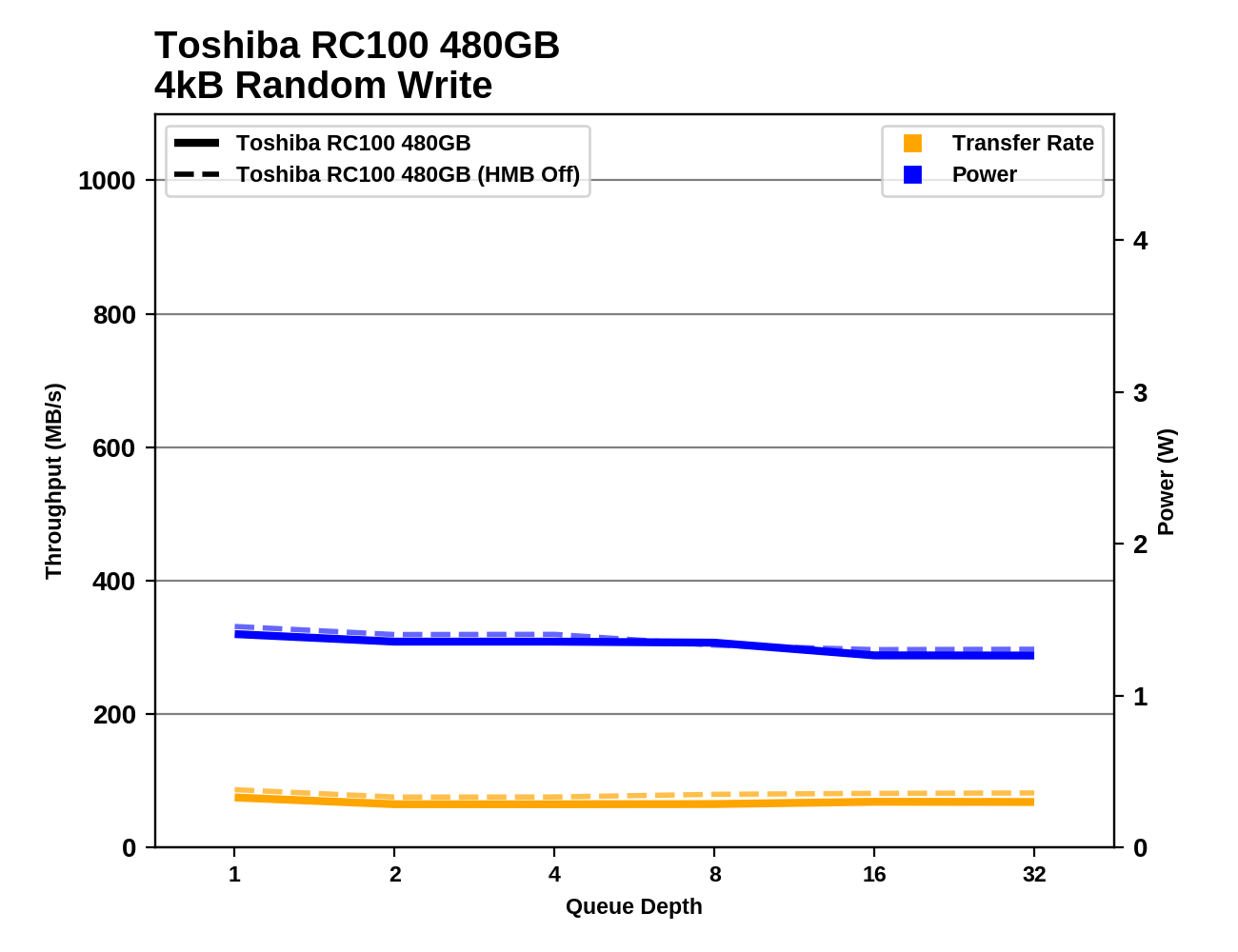 |
|||||||||
Random write performance from the RC100 is low at any queue depth. The drive doesn't have enough memory to perform effective write combining and caching under this sustained load, while high-end drives usually manage to significantly improve performance when working with a large queue of write operations.










62 Comments
View All Comments
belandresw@gmail.com - Monday, July 2, 2018 - link
The most important feature of an SSD should be tits controller. Because a reliable and durable controller will provide the efficiency of the SSD for the PC.Zim - Friday, July 12, 2019 - link
Yes, very important to control da tits.